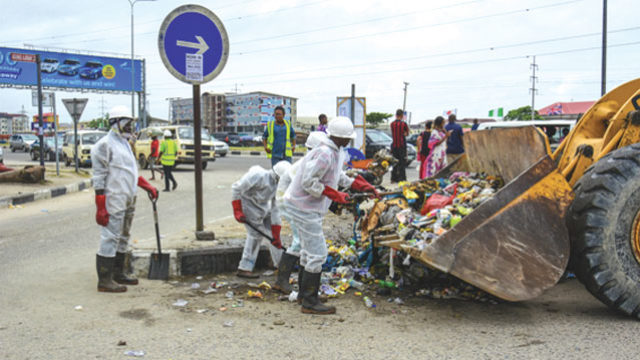Diphtheria Public Health Advisory Amidst Outbreak in Nigeria
The Nigeria Centre for Disease Control and Prevention (NCDC) has responded to reports of diphtheria cases in Lagos and Kano States and is monitoring the situation in Osun and Yobe States where cases are now being picked up. In addition to clinically suspected cases, there have been laboratory-confirmed cases and the NCDC is working with State Ministries of Health and partners to enhance surveillance and response to the outbreak. This includes keeping the public informed on staying safe at home and in their communities.
ABOUT DIPHTHERIA
What is Diphtheria?
Diphtheria is a serious bacterial infection caused by the bacterium called Corynebacterium species that affects the nose, throat and sometimes, skin of an individual.
Who is at risk?
People most at risk of contracting diphtheria:
• Children and adults who have not received any or a single dose of the pentavalent vaccine (a diphtheria toxoid-containing vaccine).
• People who live in a crowded environment.
• People who live in areas with poor sanitation.
• Healthcare workers and others who are exposed to suspected/confirmed cases of diphtheria.
Transmission
Diphtheria spreads easily between people through;
• Direct contact with infected people
• Droplets from coughing or sneezing.
• Contact with contaminated clothing and objects.
Symptoms
The onset of signs and symptoms usually starts after 2 – 10 of exposure to the bacteria. Symptoms of diphtheria include;
• Fever
• Runny nose
• Sore throat
• Cough
• Red eyes (conjunctivitis)
• Neck swelling
• In severe cases, a thick grey or white patch appears on the tonsils and/or at the back of the throat associated with difficulty breathing.
Prevention
The Nigeria childhood immunisation schedule recommends three (3) doses of pentavalent vaccine (diphtheria toxoid-containing vaccine) are recommended for children in the 6th-, 10th- and 14th -week of life.
NCDC’s Advice to Nigerians
To reduce the risk of diphtheria, the NCDC offers the following advice;
1. Parents should ensure that their children are fully vaccinated against diphtheria with three (3) doses of the pentavalent vaccine as recommended in the childhood immunisation schedule.
2. Healthcare workers should maintain a high index of suspicion for diphtheria i.e., be vigilant and look out for symptoms of diphtheria.
3. Individuals with signs and symptoms suggestive of diphtheria should isolate themselves and notify the local government area (LGA), state disease surveillance officer (DSNO) or the NCDC through our toll-free line (6232).
4. Close contacts with a confirmed case of diphtheria should be closely monitored given antibiotics prophylaxis and started on diphtheria antitoxin treatment when indicated.
5. All healthcare workers (doctors, nurses, laboratory scientists, support staff etc.) with higher exposure to cases of diphtheria should be vaccinated against diphtheria.
About NCDC
The Nigeria Centre for Disease Control and Prevention (NCDC) is the country’s national public health institute, with the mandate to lead the preparedness, detection, and response to public health emergencies. The Bill for an Act to establish NCDC was signed into law in November 2018 by President Muhammadu Buhari. The mission of the NCDC is ‘To protect the health of Nigerians through evidence-based prevention, integrated disease surveillance and response, using a One Health approach, guided by research, and led by a skilled workforce.
Contact
NCDC Toll-free Number: 6232 | SMS: 08099555577 | WhatsApp: 07087110839 Twitter: @NCDCGov | Facebook: @NCDCgov | Instagram: @NCDCgov | NCDC Media Releases
Signed:
Dr Ifedayo Adetifa
Director General,
Nigeria Centre for Disease Control and Prevention.






